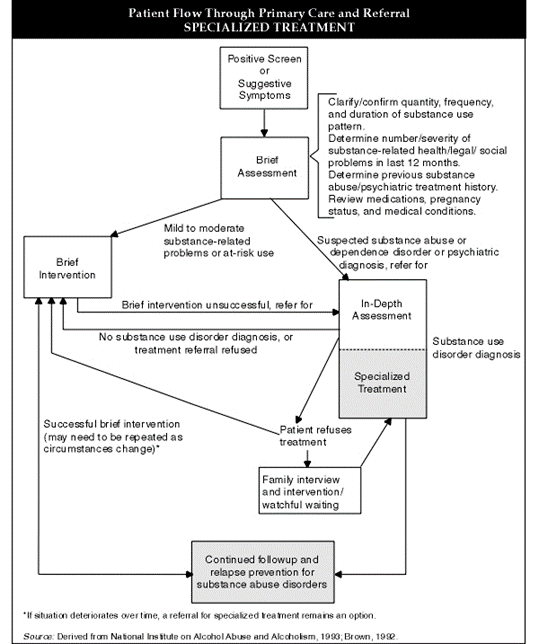There are many interventions and treatment options for substance abuse – including drug and alcohol inpatient and outpatient care. The National Institutes of Health suggest that health care professionals use the process in the diagram below,to help inform which intervention would be most beneficial for their patients:

Rehab treatment facilities often offer both inpatient and outpatient treatment. Residential or inpatient treatment offers the most intensive level of care. Outpatient care is often recommended only after a patient has undergone detoxification and residential treatment. Both residential and outpatient addiction therapy programs, like the ones at Lakeview Health, may utilize a combination of evidence-based addiction therapy and holistic addiction treatments.
Inpatient treatment
Residential or inpatient, drug and alcohol treatment, like that offered at Lakeview Health, provides on-campus lodging, meals and access to a holistic and integrative treatment program. Drug or alcohol inpatient rehabilitation treatment is an excellent option for people who will benefit from a stable, recovery-centered living environment.
By gradually allowing people to re-enter society without the weight of drug and alcohol use looming over them, patients are able to rediscover joy in the things they once loved. Patients in residential treatment programs should have access to therapists, clinicians and medical doctors.
Outpatient treatment
Transitional housing, such as a sober living house, offers patients a safe and supportive housing option. Outpatient addiction therapy services are less time-intensive and allow patients to return home each night.
Partial hospitalization programs meet for at least six hours per day, five days a week. Some partial hospitalization programs also offer outpatient detox services. Intensive outpatient programs typically meet for two or three days per week.